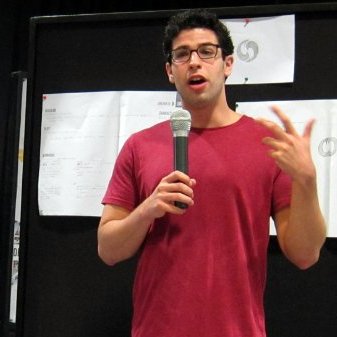When you're going through depression, pretending to be chipper and enthusiastic feels about as uncomfortable as squeezing into jeans that are four sizes too small. Yet, that's exactly what you're required to do when you're depressed and working in customer service. If you have ever worked in customer service before, you know that most of what your job entails is a big smile, the ability to build rapport with your customers, and the capacity to have a genuine interest in how a stranger's day is going. When you're struggling with depression and you can barely summon interest in your actual hobbies, how are you supposed to feign excitement about a stranger's weekend plans?
From experience, I can tell you what helps and what doesn't.
First, what doesn't help: ignoring that you have a problem. Depression is an illness just like any other and it ought to be treated as such. If you are forcing a happy-go-lucky mood and trying to "fake it 'til you make it", that's about as healthy as a person with cancer deciding that since they can't actually see the cancerous cells, the cells basically don't exist. Telling yourself this lie only exacerbates the problem by wasting precious time that could be spent trying different forms of treatment. I knew I had a problem long before I did anything to solve it, which means I felt horrible for longer than I needed to.
Instead of ignoring your feelings, the first step you should take is to see your doctor. They will help you find the treatment that works best for you, which could come in the form of a little blue pill, regular therapy sessions, or even getting more sleep. It might take awhile for you to feel better, but you will eventually find the magic combination that makes you you again. For me, it's a a mix of medication, regular exercise, and getting outside as much as possible.
Along with seeing a professional, you need to get some face time with someone at your workplace who you are comfortable sharing this information with. It could be your boss or even a person in human resources. They need to know about the health issues you are having (again, just as a cancer patient would let their employer know about their illness). Your employer will appreciate you confiding in them and should support you in getting help. When I talked with my boss about my depression, her first response was to tell me that my health comes before work and that she supports whatever I need to do. She understands that I need to feel 100% to bring 100% effort to my job every day. If your employer doesn't understand this, then it might be time to update your resume and move on to a place that will.
When it comes to interacting with customers, the one method that helps me get through the tough days is to remember that the customer in front of me does not know what I'm going through. They have no way of knowing how difficult it is for me to muster the obligatory small talk, so I have to be patient and kind when they expect me to chat about the weather. How I feel is not their fault, so they deserve my best effort at small talk. Even the unkind customers deserve respect, because I understand that they might have something going on in their lives that is causing them to act out. Use your illness as a reminder that everyone is dealing with their own issues and that a little empathy can go a long way.
Even more important than being patient and kind with customers, in my opinion, is to be patient and kind to yourself. If, after cycling through all the treatment options and talking with your employer, you still aren't feeling up to par when it's time to clock in and greet the first customer of the day, then it's possible that your job is not a good fit for you. There is nothing wrong with deciding it's time for a change and looking for something else. Your health is more important than what you do from nine to five.
If you are struggling with depression and have not gotten up the courage to make an appointment with your doctor or discuss it with your employer, I urge you to do it today. You deserve to feel better, first for yourself, second for your friends and family, and lastly, for your career.















